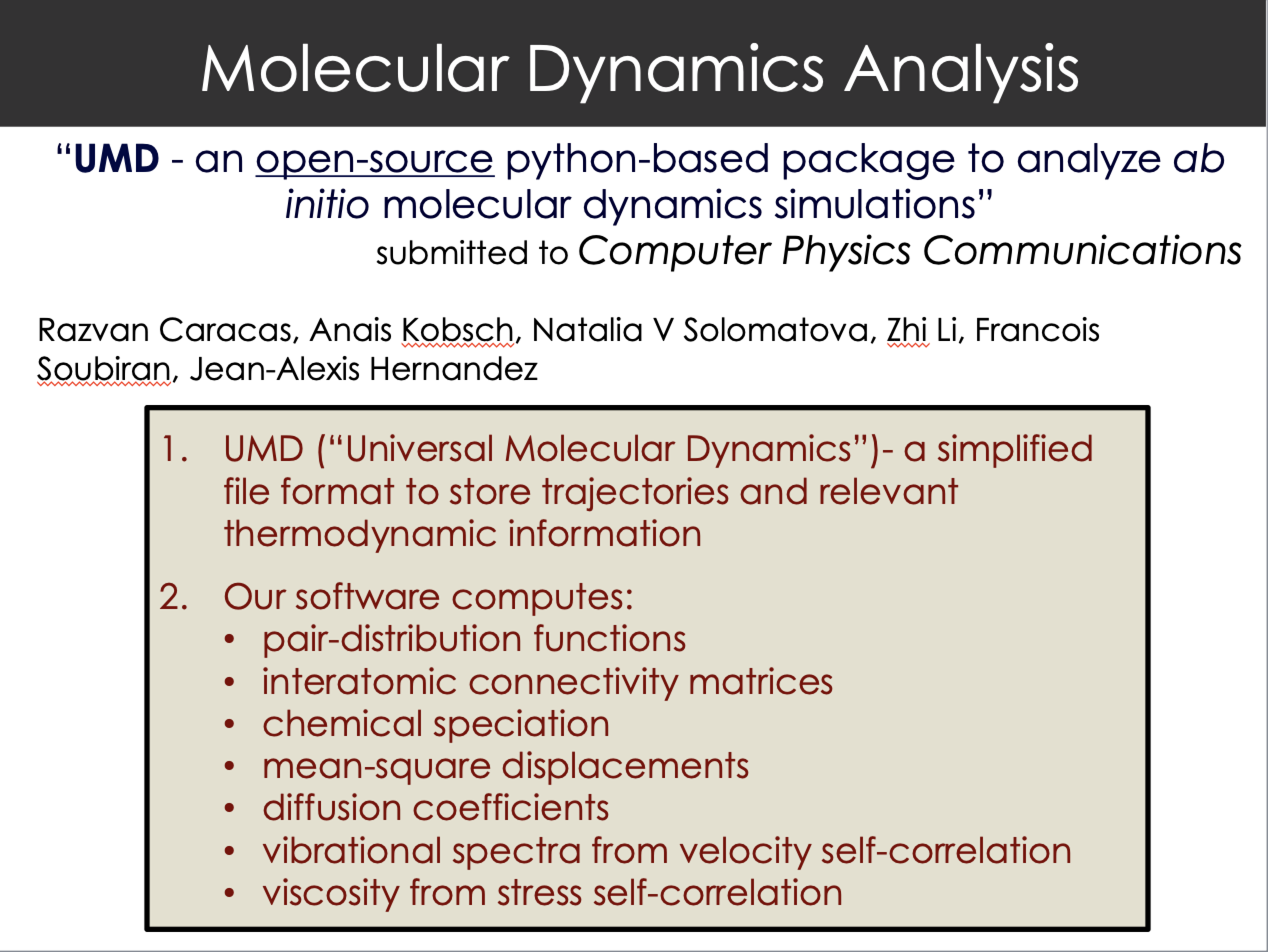
The UMD package performs post-processing of molecular-dynamics simulations. It is best suited for ab initio calculations. It is written in python, and it is open-source. We welcome contributors and collaborators!
The package can be downloaded from Github
And if you use the code, while waiting for its publication in a scientific paper (later this year), please cite it using its DOI: 10.5281/zenodo.3710978
UMD file format
The umd files are ascii files; typical extension is .umd.dat but not mandatory.
Each physical property is expressed on one line. Every line starts with a keyword, followed by the numerical value(s), and the unit. In this way the format is highly adaptable and allows for new properties to be added to the umd file, all the while preserving its readability throughout versions.
Then each atom is detailed on one line, where
- columns 1-3 give the atomic positions expressed in reduced coordinates
- columns 4-6 give the atomic positions expressed in cartesian units
- columns 7-9 give the real Cartesian positions that take into account diffusion,
- columns 10-12 give the atomic velocities
- columns 12-15 give the atomic forces
- column 16 gives the atomic charges
- column 17 gives the atomic local magnetic moment.
All the functions related to the reading and printing of the umd files are combined into one python library, umd process.py. These functions are consistently called by all the scripts of the package after proper loading.
